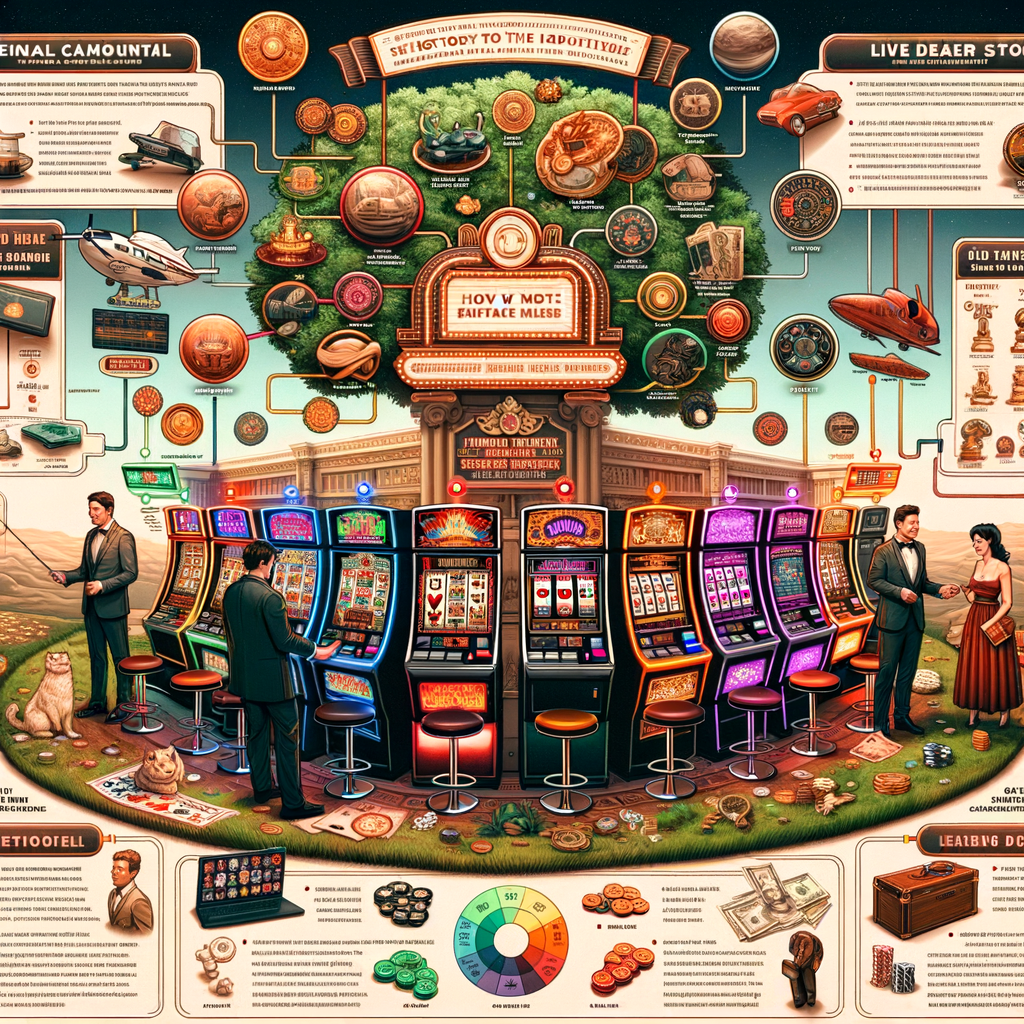Casino loyalty programs have become an integral part of the gaming experience, designed to reward players for their patronage and enhance the overall customer experience. These programs take various forms, from simple point systems to elaborate tiered structures offering exclusive benefits. Understanding how these programs operate and determining their value is essential for players who wish to maximize their gaming experience. In this article, we will dive into the mechanics of casino loyalty programs and evaluate when it makes sense to engage with them.
Understanding the Mechanics of Casino Loyalty Programs
How Loyalty Programs Operate
Casino loyalty programs, often referred to as player’s clubs, reward patrons for their gambling activities. Essentially, players earn points based on their bets or the amount of time spent playing. These points can be redeemed for various perks, including free meals, hotel stays, event tickets, and even cash back. The underlying idea is simple: the more you play, the more rewards you earn.
Typically, players begin by signing up for a loyalty program, which is usually free. Upon joining, they receive a player’s card that tracks their gaming activity. Whenever they gamble, whether at slots or tables, they must present this card to accrue points. Most casinos have user-friendly kiosks or dedicated staff to help players check their point balances and redeem rewards.
Loyalty programs often feature tier levels that provide additional incentives to players. For example, a casino might have three levels: Silver, Gold, and Platinum. As players accumulate points, they can progress to higher tiers, unlocking more exclusive benefits. Higher-tier members often enjoy perks such as priority service, higher point multipliers, and access to special events.
Types of Rewards and Benefits
The rewards offered through loyalty programs can vary significantly from one casino to another, but they typically fall into several categories:
- Cash Rewards: Many programs allow players to convert points into cash, either to use in the casino or withdraw.
- Complimentary Services: Free meals, drinks, and hotel stays are common rewards. Higher-tier members may also receive complimentary spa treatments or tickets to concerts and shows.
- Exclusive Events and Promotions: Many casinos host exclusive events for loyalty members, such as private tournaments, special dining experiences, or entertainment nights.
- Gaming Perks: This includes enhanced odds, betting bonuses, and even personalized offers based on a player’s gaming preferences.
The Psychology Behind Loyalty Programs
The mechanics of casino loyalty programs are grounded in behavioral psychology. Casinos understand that rewards can significantly enhance customer retention. By creating a sense of achievement and recognition through tier levels and rewards, players are often motivated to return. The anticipation of “earning” a reward or reaching a higher tier encourages players to gamble more.
Furthermore, loyalty programs create a sense of community among players. Engaging in exclusive events or having access to special promotions enhances the social experience of visiting a casino. This social aspect, combined with the tangible benefits of loyalty programs, keeps players connected to the casino brand and encourages long-term loyalty.
Evaluating the True Value: When to Engage and When to Skip
Analyzing Cost vs. Benefit
While casino loyalty programs offer many enticing rewards, it is crucial for players to evaluate the cost versus the benefit of participation. A common mistake is to chase rewards without considering the actual amount spent. For instance, if a player spends $1,000 to earn a few hundred points, the return on investment may not be worthwhile.
Before engaging with a loyalty program, players should:
- Understand Point Accumulation: Know how many points are needed for specific rewards and how quickly you can earn them based on your average bet and playtime.
- Calculate Expected Rewards: Assess the value of the rewards compared to your gambling spend. For example, if you need to wager $5,000 to qualify for a $50 reward, it may not be worth the effort.
- Consider the Time Commitment: Evaluate whether the time and money spent will yield satisfactory rewards. Sometimes the allure of free items might not justify the amount you must wager.
When to Engage with Loyalty Programs
Engaging with a loyalty program can be worthwhile under certain circumstances. Here are a few scenarios where participation makes sense:
- Frequent Players: If you play regularly at a casino, loyalty programs can offer significant rewards that add real value to your experience. The more you play, the more you benefit.
- High Rollers: Players who bet large amounts can quickly accumulate points and move through tier levels, unlocking premium rewards and personalized service.
- Special Promotions: Casinos often run promotions that offer double points or other incentives for a limited time. Taking advantage of these promotions can maximize your rewards.
When to Skip Loyalty Programs
Conversely, there are instances when it may be wise to forgo engaging with a loyalty program. Consider the following factors:
- Infrequent Visitors: If you only visit a casino occasionally, the time and money spent to earn rewards may not be justifiable.
- Low Bet Amounts: Players who prefer low-stakes gambling may find that the points earned do not warrant the effort and may be better off focusing on entertainment rather than the benefits.
- High House Edge Games: If you tend to play games with a high house edge, the potential rewards from a loyalty program might not compensate for the losses incurred.
| Reward Type | Silver Tier | Gold Tier | Platinum Tier |
|---|---|---|---|
| Point Accumulation Rate | 1 point per $10 spent | 1.5 points per $10 spent | 2 points per $10 spent |
| Complimentary Meals | 10% off | Free dinner once/month | Free dinner weekly |
| Exclusive Events | Access to monthly events | VIP access to shows | Private tournaments |
| Cash Back | 2% | 3% | 5% |
Conclusion
Casino loyalty programs can be valuable tools for enhancing your gaming experience, offering a range of rewards and incentives. Understanding the mechanics of these programs allows players to make informed decisions about their participation. However, evaluating when to engage and when to skip is equally important. By analyzing the cost versus benefits, frequent and high-rolling players can take full advantage of these programs while casual gamblers may find them less beneficial. Ultimately, the key is to enjoy the gaming experience while maximizing the rewards that come with loyalty.








